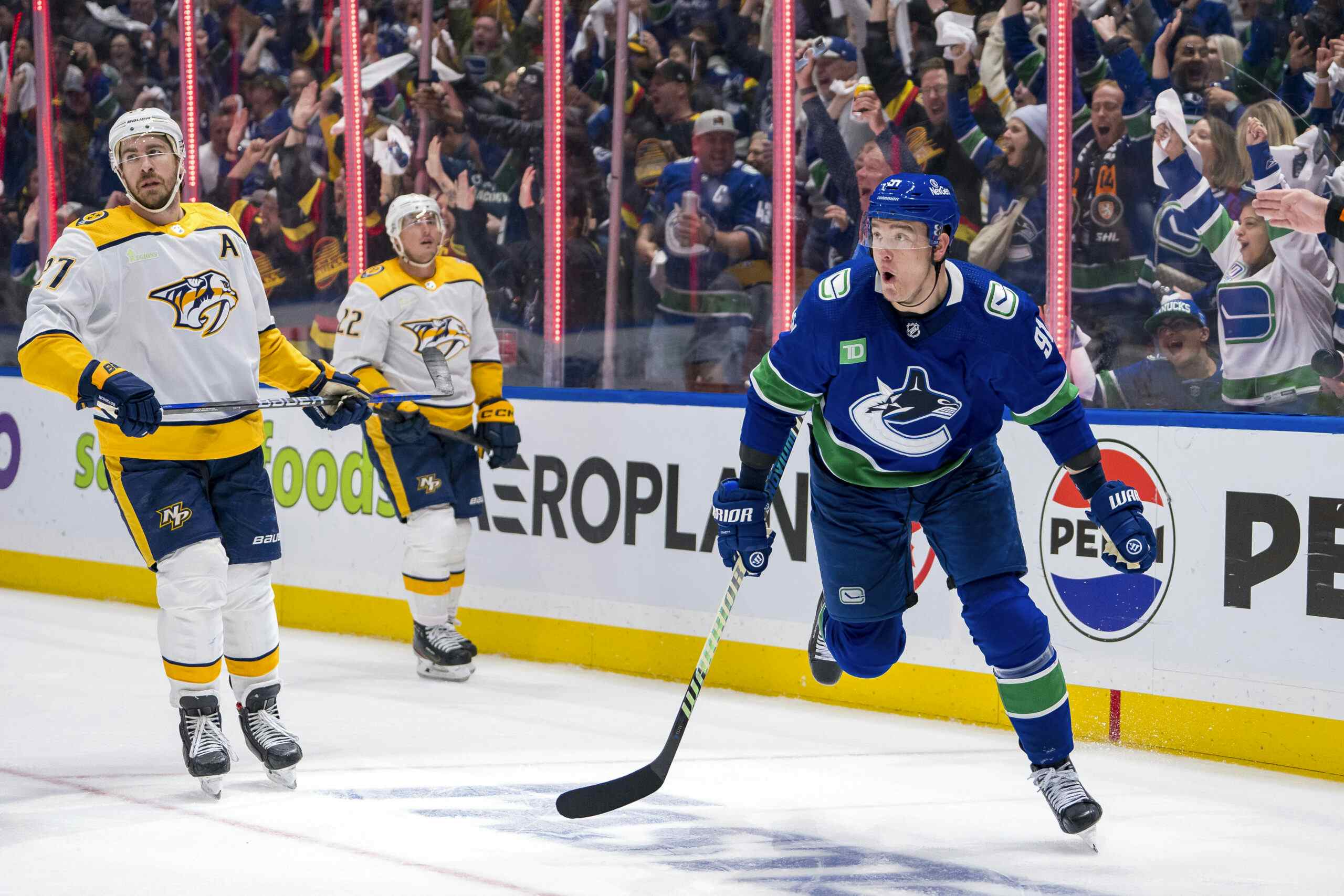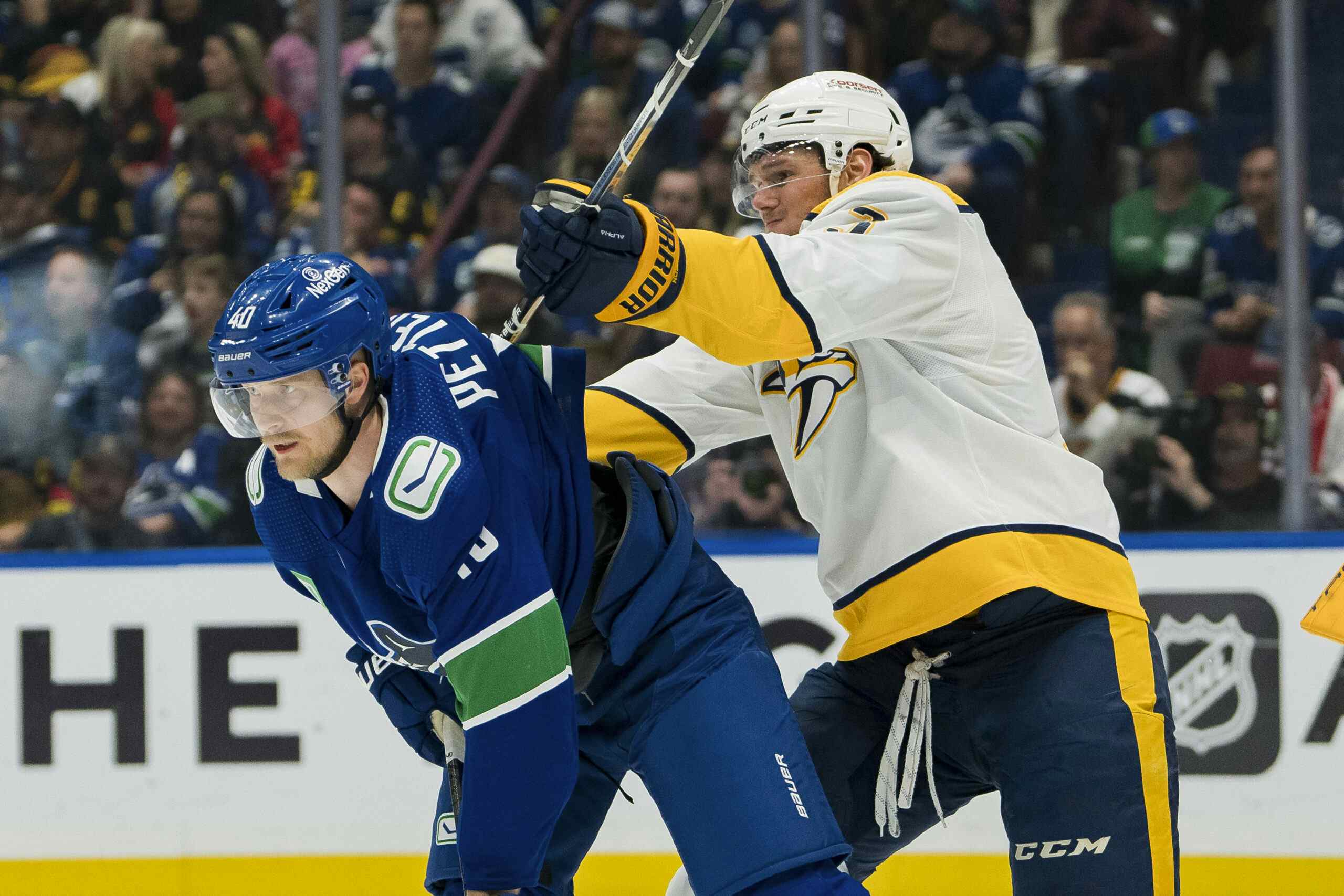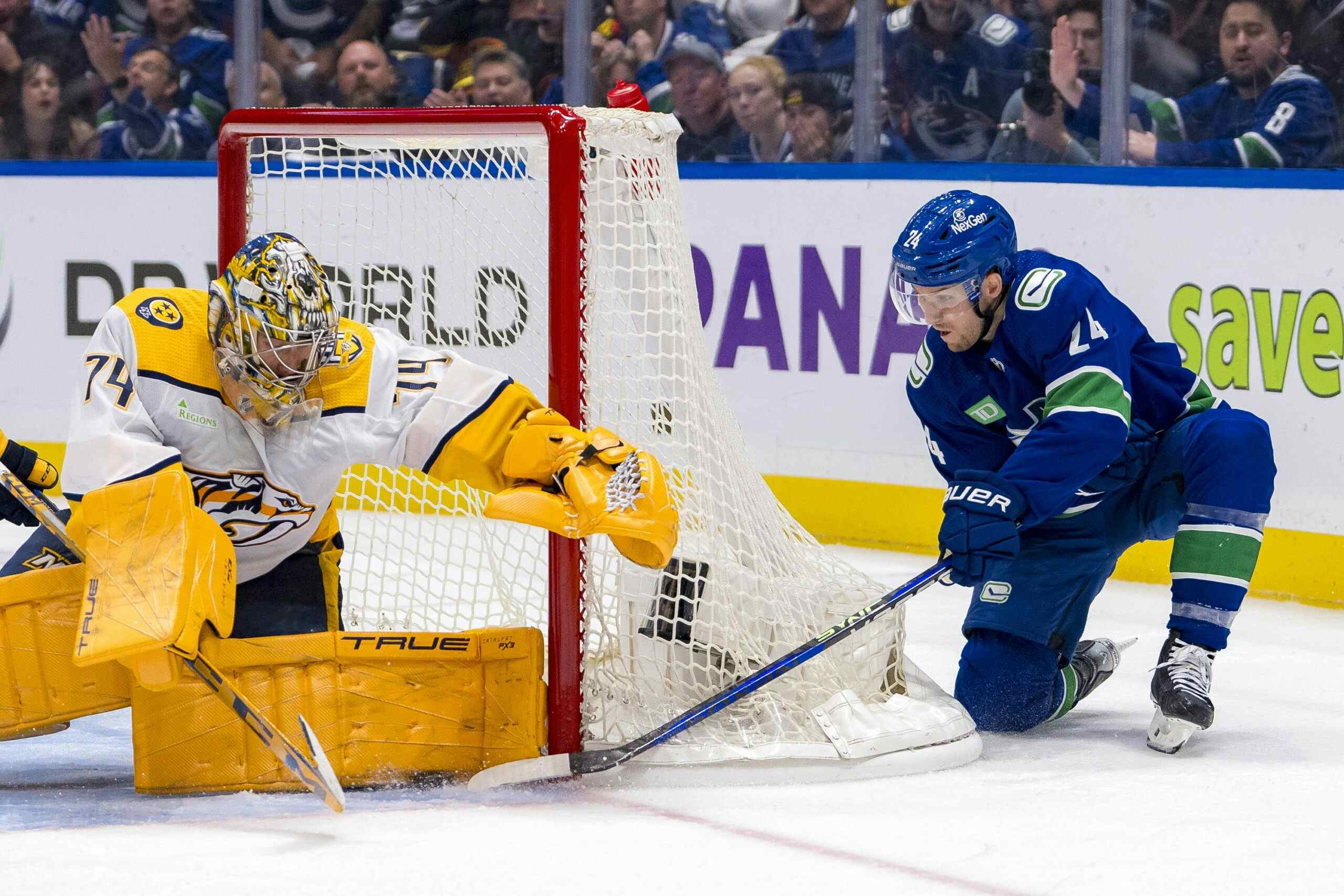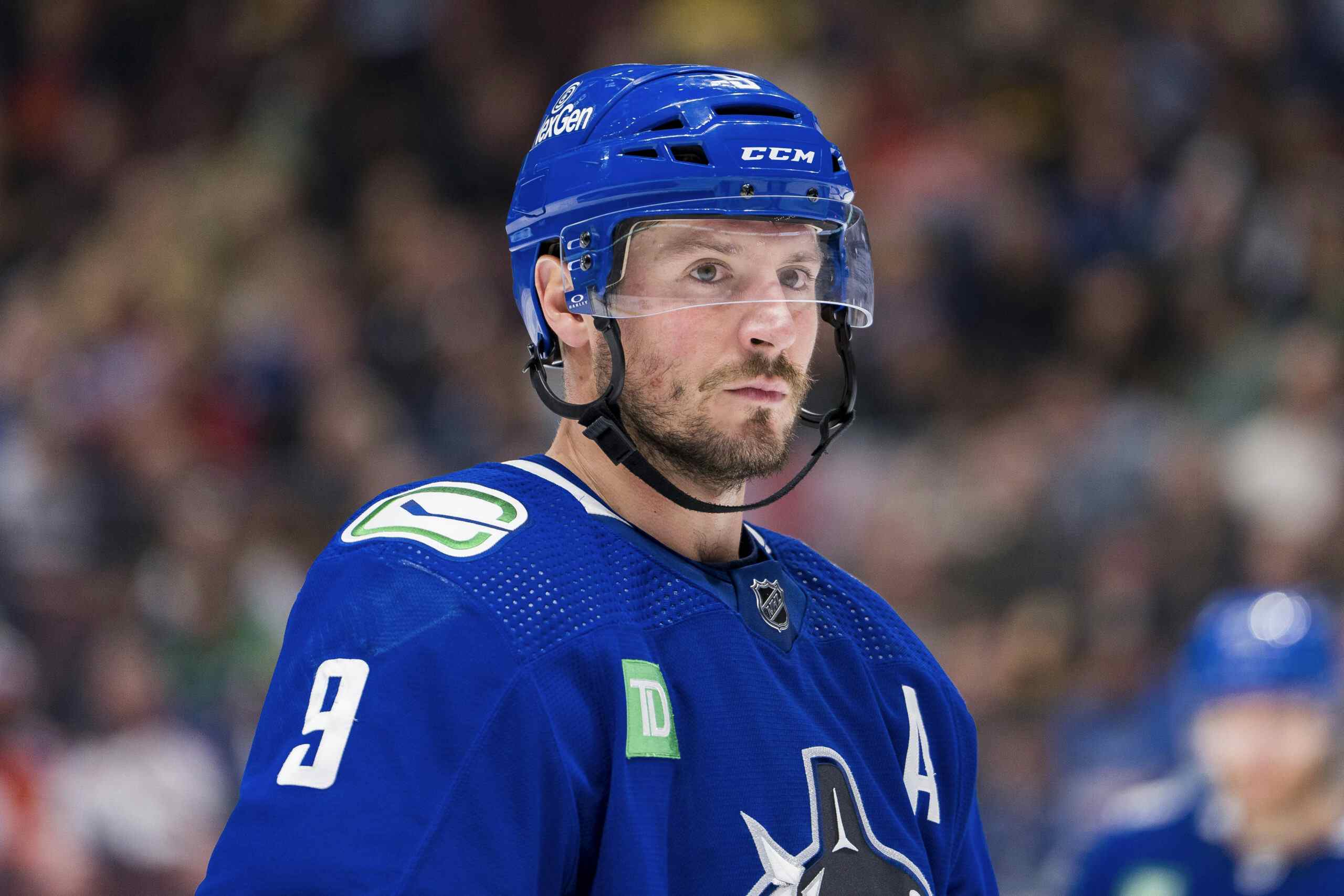Laurence Gilman: Master Negotiator
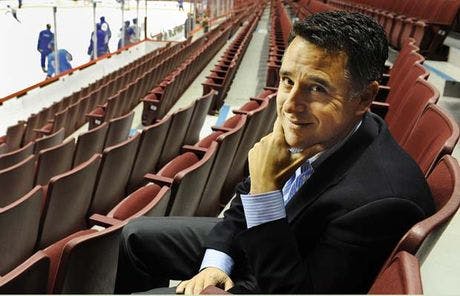
Photo credit: Post Media News/Mark Van Manen
In four years as General Manager and Team President of the Canucks, Mike Gillis’ tenure has been a massive success – that is so long as you don’t subscribe to a doltishly narrow view of success. Sure, the Canucks current management team has yet to hoist a Stanley Cup, has a mixed record on the trade market, and has yet to draft a real impact player – but they’ve overcome these short comings to a large extent, and built their success on the strength of their contract work.
When it comes to the club’s handling of player contracts, resident "capologist" Laurence Gilman, who is the management team’s "chief negotiator" and is "also responsible for the administration and application of the NHL Collective Bargaining Agreement and the development of the club’s strategic salary cap plan," has been the driving force. Hiring Gilman away from Phoenix was one of Gillis’ first acts as General Manger (Gilman was hired less than two weeks after Gillis was), and it has worked out to be inarguably one of his shrewdest personnel moves in Vancouver.
Read past the jump.
With Gilman as his lead negotiator, Mike Gillis has locked up a top-end core on uniformly reasonable deals, including the Sedins (6.1 million each), Ryan Kesler (5 million), Alex Burrows (2 million), Dan Hamhuis (4.5 million), Kevin Bieksa (4.6 million) and Roberto Luongo (5.4 million dollar cap-hit). Obviously the Luongo contract is the albatross outlier here, it’s a weighty lifetime deal that the league only barely approved, but the cap-hit is ultimately reasonable for an elite NHL goaltender.
On the open market, they’ve persuaded the likes of Manny Malhotra and Dan Hamhuis to "play for less" in signing with Vancouver – and most of the guys on the current roster left a significant chunk of cash on the table when they re-upped with the team. Gilman and Gillis have also locked up useful assets like Chris Higgins, Jannik Hansen, Aaron Rome, Maxim Lapierre and Cory Schneider to cheap deals. They’ve also done consistently well to avoid salary arbitration, with only one player ending up in contract arbitration during the Gillis/Gilman era – and it was unessential waiver wire pick-up Kyle Wellwood.
The team’s "bad contracts" (Keith Ballard and David Booth) were acquired on the trade market, not signed in-house, and while those deals are admittedly odious, Gilman’s contract work is so good that they’re not onerous. The same logic applies to the management team’s struggles at the draft table – the Canucks have managed to field competitive, cost effective teams despite the fact that none of the club’s major contributors are on entry level deals…
This week, I picked up Bruce Dowbiggin’s "Money Players: The Amazing Rise and Fall of Bob Goodenow and the NHL Players Association" (buy it here) from Red Deer Press, and I’ve found it a fascinating read thus far. One snippet in particular that I felt was worth blogging about, is a passage towards the end of a chapter about hold outs and arbitration, that focuses on Laurence Gilman’s negotiating ability (emphasis mine):
""I remember one time," says agent Tom Laidlaw, "I had Dallas Drake as a client in Winnipeg. They’d hired a young guy named Laurence Gilman, who’s now in Phoenix doing their contracts. He got on the phone and said, "i’m the new lawyer of the team." I just went, Oh God, this is going to be different. Before I was dealing with hockey guys – no disrespect to anybody when I say this, but I felt I could deal a lot more easily with a hockey guy. Now the emotions are taken out of it in most cases. Basically, it’s, ‘Here’s the numbers, here’s the players rights.’ Both sides fight hard using the CBA. It’s not an easier process, but it’s a much more professional one."Other agents who’ve dealt with Gilman echo Laidlaw’s appraisal. "Laurence won’t talk to you till he’s ready to," says Mike Gillis "Some guys just answer the phone and let the agents start the process before they’re prepared. Laurence only talks when he’s ready to talk. You don’t end up with a hasty deal that both sides are uncomfortable with.""
Gilman’s negotiating skills, which so impressed Mike Gillis five years before he hired him in Vancouver, will likely continue to pay dividends over the course of this summer.
Heading into this offseason, the Canucks have just over nine million dollars in cap-space (before any anticipated Roberto Luongo, and possibly Keith Ballard trades) according to CapGeek, and only one "key" player to re-sign (Cory Schneider). Marc-Andre Gragnani and Dale Weise are RFAs with limited leverage, and will almost certainly be back for cheap; meanwhile: Aaron Rome, Mason Raymond, Sami Salo, Sammy Pahlsson, Aaron Volpatti and Byron Bitz are all readily replaceable, should they decide to test the open market.
Assuming Roberto Luongo is sent East, getting Cory Schneider signed to a long-term deal (that buys out several of his RFA years) is going to be essential for the Canucks this summer. Steve Mason’s hilarious 2.9 million dollar deal, combined with the fact that few goaltenders have ever played as well through fifty career starts as Schneider has, should push his value well north of 3 million per season.
While contract negotiations with Cory Schneider could prove to be particularly difficult for the Canucks, the club is on firm footing thanks to the plethora of cost-effective deals on the roster. Gilman and Gillis are well positioned to address the team’s primary needs (in particular, a top-4 defenseman) without sacrificing long-term flexibility against the cap. That long-term flexibility is key, because the Canucks have several core players (Edler, Burrows) and a few other useful role players (Higgins, Lapierre, Tanev) on deals that expire after this upcoming season, and all of them will be in line for a healthy raise.
Recent articles from Thomas Drance

